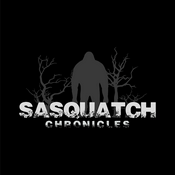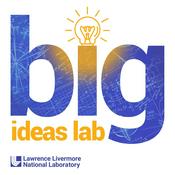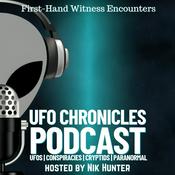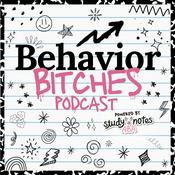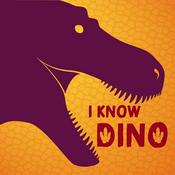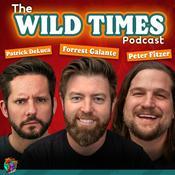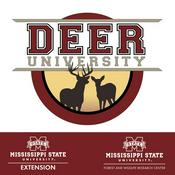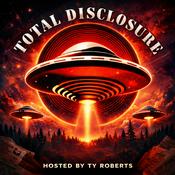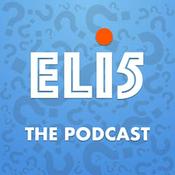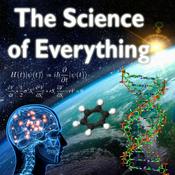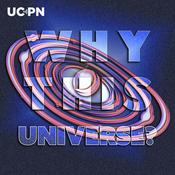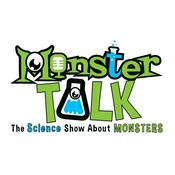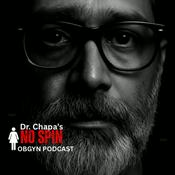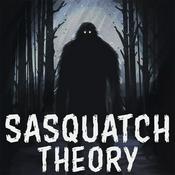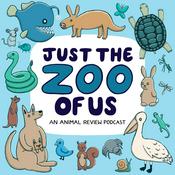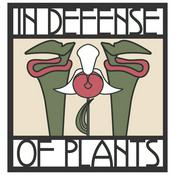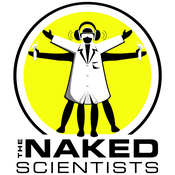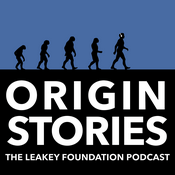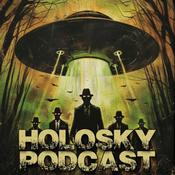102 episodes
The Original Affluent Society? Lessons from 60-Years of "Man the Hunter" Research ~ Richard B. Lee
2/10/2026 | 58 mins.What was life like before farming? Was it nasty, brutish, and short? Or did our hunter-gatherer ancestors live lives that were relatively free, affluent, and ecologically stable?
In the lack of a time machine, many anthropologists have sought answers from studying the few hunter-gatherer communities that still exist today. In 1966, several leading names in the field were invited to present their results at a symposium at the University of Chicago. This “Man the Hunter” conference became a landmark event, but what exactly were the results? And have they stood the test of time?
To mark the 60th anniversary of the "Man the Hunter" symposium, On Humans is glad to share the first-ever long-form podcast with the legendary anthropologist and co-organiser of the symposium, Richard B. Lee. We discuss the legacy of the conference, Lee’s own experiences living with hunter-gatherers in the Kalahari, and his reflections on what we do and do not know about the ancient lifeways of hunter-gatherers. As we do so, we also discuss various controversies and mysteries, from women's roles to Native American farmers, and from archaeological black holes toThe Dawn of Everything.
Enjoy!
FACT-CHECKING
No factual errors have been detected so far. If you see an error, you can get in touch using the form below.
LINKS
Support: Patreon.com/OnHumans
Get in touch: https://forms.gle/h5wcmefuwvD6asos8
MENTIONS
The Worst Mistake in the History of the Human Race (Jared Diamond) https://www.discovermagazine.com/the-worst-mistake-in-the-history-of-the-human-race-12157
The Original Affluent Society (Marshall Sahlins) https://www.uvm.edu/~jdericks/EE/Sahlins-Original_Affluent_Society.pdf
For my previous coverage on “woman the hunter” controversies, see “Is Man the Hunter Dead” and my interviews with Cara Ocobock and Katie Starkweather, all available here: https://onhumans.substack.com/p/is-man-the-hunter-dead
For Richard Lee's own comments on the controversy, see his interview with Vivek Venkataraman https://osf.io/x7ar3_v1/
Names: Richard B. Lee | James Suzman | Marshall Sahlins | David Graeber | David Wengrow | Jared Diamond | Sarah Blaffer Hrdy | Jerome Lewis | Colin Turnbull | James Woodburn | Eleanor Leacock | Louis Henry Morgan | Karl Marx | George Armelagos | Irvin DeVore | Sherwood Washburn | Jay Desmond Clark | Harriet Rosenberg | Lawrence K. Marshall | Elizabeth Marshall | John Marshall | Greta Thunberg | Vivek Venkataraman
Ethnic groups: San | Ju/’hoansi | !Kung | Khoisan | Khoikhoi | “Bushmen” | “Hottentots” | First Nations | Tlingit | Haida | Inuit | Australian Aboriginal peoples | Bayaka| Batek | Huron-Wendat | Iroquois | Six Nations | Plains Indians | Hopi | Navajo | Cherokee
KEY WORDS
anthropology | archaeology | ethnography | human origins | human behavioural ecology | hunter-gatherers | paleolithic | neolithic transition | original affluent society | Kalahari Desert | Botswana | Namibia | paleogenetics | gathering vs hunting | gender roles | women hunting | egalitarianism | origins of hierarchy | surplus | food storage | salmon economies | Northwest Coast hunter-gatherers | archaeology of early farmers | bioarchaeology | stature/height decline | teeth health | disease burden | zoonoses | cross-species infection | Neolithic fertility increase | population pressure and “intensification” | chiefdoms | states | empires | ecology vs culture debate | materialist vs idealist | concentration–dispersion | colonialism | exploitation | land rights | climate change | human futures- The world is full of religions, but none as timeless as shamanism. And whilst many modern religions have shed their shamanic skins, the shaman is rarely as far away as we have been told.
Or so argues anthropologist Manvir Singh in his book, Shamanism: The Timeless Religion.
Singh’s work is fascinating in its capacity to link the exocit with the familiar, showing how rainforest rituals are not so far removed from urban modernity as we might think.
Today, I will have the rare chance to enjoy Singh's insights together with you, as a listener. The hard work will be done by Kensy Cooperider, the host of the Many Minds Podcast.
Many Minds is one of my own go-to shows and has a lot to recommend for it. Just like On Humans, it breaks down complex scientific concepts about humanity into easy-to-follow yet in-depth conversations. Yet unlike On Humans, it has insanely well-referenced show notes! Just check this one out.
Kensy and I had a beachside chat this November and decided it would be good to introduce ourselves to each other's audiences. So here we go!
LINKS
Many Minds: https://disi.org/manyminds/
Diverse Intelligences Summer Institute: https://disi.org/
Episode page: https://disi.org/the-shaman-with-a-thousand-faces/
Manvir Singh: https://www.manvir.org/
KEYWORDS
Anthropology | Psychology | Religion | Cross-cultural study | Abrahamic religions | Neo-shamanism | Human universals | - Happy 2026! On Humans has typically marked the coming of January by revisiting the previous year’s most popular episode. This time, the New Year special packs the five-hour-long "Origins of Humankind" series into one fast-paced dive through deep time.
By mixing highlights from the original interviews with fresh narration, this episode offers a captivating journey through many of the great topics around human origins, such as:
Who were the first primates
The role of fruits, snakes, and predators
The human solution to danger
How to grow a human brain?
What did our ancestors eat?
Effects of our upright posture
Origins of music & language
How Homo sapiens took over the world
Enjoy!
LINKS
For the original five-hour experience, see: OnHumans.Substack.com/Origins
For a shorter series on ancient DNA: see OnHumans.Substack.com/DNA
Support: Patreon.com/OnHumans
The series was produced together with CARTA (UCSD & Salk Institute). For past recordings of CARTA symposia on human origins, see: Carta.Anthropogeny.org/Symposia
KEYWORDS
Human evolution | Human origins | Science | Biology | Paleoanthropology | Anthropology | Archaeology | Fossils | aDNA | History of life | Life history | Dinosaurs | Primates | Apes | Hominins | Homo sapiens | Evolution of language | Evolution of music | Brain evolution | Paleoneurology | Neanderthals | Denisovans | Neolithic Revolution | Spread of agriculture | Human destiny Why Do We Laugh? Philosophers on Jokes, Humor, and the Human Condition ~ Mira Magdalena Sickinger
12/24/2025 | 1h 2 mins.“The podcast is great, but one thing hasn’t been covered yet: humour. It’s an essential part of our human condition, and would certainly be worth an episode.”
This listener feedback was easy to agree with.
From standup comedy to nervous laughter, our lives are filled with chuckles and giggles.
Why?
Why do adults laugh at witty jokes whilst children laugh at the simple pleasures of peek-a-boo? And why should any of us laugh in the first place?
My guest is Mira Magdalena Sickinger. a poet and a philosopher of humour from the University of Vienna.
We cover a lot in the discussion: from the social roles of humour, to the politics of joking, and the therapeutic effects of a humorous attitude. In the course of the conversation, we cover the views of many intellectual giants, from Sigmund Freud to Immanuel Kant — and while the conversation includes a handful of silly jokes (be warned), it ends with a deeper reflection on how humour can serve as a window into the human condition itself.
FACT CHECKING
No errors have been found as of now. If you find an error in this or other episodes, get in touch via the form below.
LINKS
Articles and essays: OnHumans.Substack.com
Support: Patreon.com/OnHumans
Contact Form: https://forms.gle/h5wcmefuwvD6asos8
MENTIONS
Simon Critchley | Ted Cohen | Robin Dunbar | Ágnes Heller | John Morreal | Immanuel Kant | Thomas Wilk & Steven Gimbel | V S Ramachandran | Sigmund Freud | Janet Bing & Joanne Scheibman | Thomas Nagel | Aristotle | Thomas Aquinas | John Dewey | Robin Tyler
KEYWORDS
Philosophy | Psychology |Anthropology | Incongruence theory | Relief theory | Superiority theory | Play theory | Humor | Blended spaces | Stasi & communism jokes in East Germany | Feminist & queer humor | Jokes | Absurdity | Irony | Existentialism | Meaning of life |Restless Humanity: The Epic Migrations Into the Americas, Polynesia, and... Beyond? ~ Andrés Moreno-Estrada
12/05/2025 | 25 mins.We are a movable species. In less than 50 thousand years, Homo sapiens has penetrated practically all corners of the earth.
This is an episode about those epic migrations, with a focus on the two furthest edges of the human migratory map: the Americas in the West and the Polynesian islands in the East. In the end, we discuss emerging evidence that those branches met each other -- work coming directly out of the work of my guest, Andrés Moreno-Estrada.
Enjoy!
DECODING OUR STORY
This is episode 3 in the "Decoding Our Story" mini-series, recorded live at the Salk Institute's CARTA symposium on ancient DNA. The other episodes are:
"The Neanderthal Mirror: Latest Findings About the Lines Between Us" ~ David Gokhman
"Beyond Race: A New Outlook on the Shape of Humanity" ~ Diyendo Massilani
FACT CHECKING
No errors have been found as of now. If you find an error in this or other episodes, get in touch via the form below.
LINKS
Articles and essays: OnHumans.Substack.com
Support: Patreon.com/OnHumans
Contact Form: https://forms.gle/h5wcmefuwvD6asos8
CARTA symposium
The Moreno lab
KEYWORDS
Human population history | Human origins | Anthropogeny | Anthropology | Ancient Migration | Out of Africa | Homo sapiens | Ancient DNA | Comparative genetics | Austronesian expansion | Taiwan | Admixture | Archaeogenetics | Archaeology | Polynesia | Easter Islands | Rapa Nui | Hawai'i | Aotearoa New Zealand | Tonga Fiji | Native American origins | Latino genetics | Latinx genetics | Hispanic genetics | Indegenous genetics |
More Science podcasts
Trending Science podcasts
About On Humans
Where do we come from? How did we get here? And what kinds of creatures are we?
On Humans features conversations with leading scholars about human nature, human condition, and the human journey. From the origins of war to the biology of love, each episode brings fresh insights into perennial questions about our self-understanding.
The show now unfolds in series of episodes built around a chosen theme, offering ever-deeper dives into some of the biggest questions in science, philosophy, and history.
Welcome to the journey!
Podcast websiteListen to On Humans, Hidden Brain and many other podcasts from around the world with the radio.net app
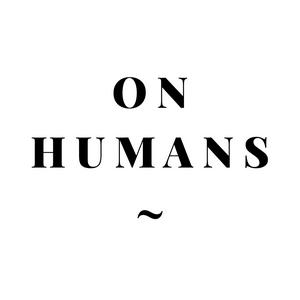
Get the free radio.net app
- Stations and podcasts to bookmark
- Stream via Wi-Fi or Bluetooth
- Supports Carplay & Android Auto
- Many other app features
Get the free radio.net app
- Stations and podcasts to bookmark
- Stream via Wi-Fi or Bluetooth
- Supports Carplay & Android Auto
- Many other app features


On Humans
Scan code,
download the app,
start listening.
download the app,
start listening.






